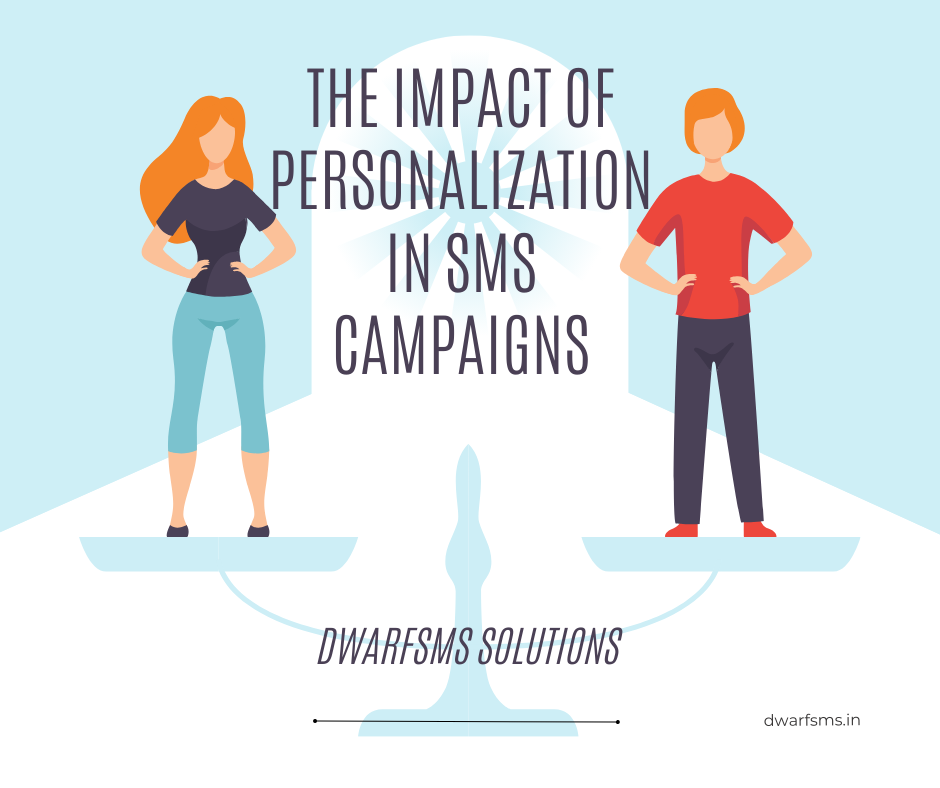
The Impact of Personalization in SMS Campaigns
Why Personalization is Important
Personalization in marketing isn't just a fad; it’s essential. Consumers want brands to understand their needs and preferences. A study by Epsilon found that 80% of consumers are more likely to buy from brands that offer personalized experiences. This shows how important it is for marketing messages to be relevant to each person.
Benefits of Personalizing SMS Campaigns
Better Engagement: Personalized SMS messages grab attention and engage recipients. When messages match the recipient’s interests, they are more likely to read and respond.
Enhanced Customer Experience: Personalized messages make customers feel valued. When businesses send tailored messages, it shows they care about their customers, leading to a better overall experience and loyalty.
Higher Conversion Rates: Personalized messages can increase conversion rates. By sending relevant offers and recommendations, businesses can encourage customers to take action, such as making a purchase.
Lower Churn Rates: Personalized communication helps retain customers. Regular engagement through personalized messages can address customer needs and concerns, reducing the chances of them switching to competitors.
How to Personalize SMS Campaigns
Segment Your Audience: Divide your audience into groups based on age, purchase history, browsing behavior, and more. This allows you to send targeted messages to each group.
Use Customer Data: Use the information you have about your customers to personalize messages. This can include their name, past purchases, and preferences. For example, “Hi [Name], we thought you’d love our new product based on your recent purchase of [Product].”
Behavioral Triggers: Set up automated SMS campaigns based on customer actions. For example, send a thank you message after a purchase, a reminder if they left items in their cart, or a special offer on their birthday.
Dynamic Content: Use dynamic fields in your SMS templates to insert personalized information for each recipient, such as their name or personalized offers based on their past interactions with your brand.
Real-World Examples
Amazon: Amazon sends personalized SMS notifications about order updates, recommendations based on browsing history, and special offers tailored to individual preferences. This has significantly helped with customer retention and satisfaction.
Starbucks: Starbucks uses personalized SMS messages to inform customers about their loyalty points, special offers on their favorite drinks, and reminders to use their rewards before they expire. This keeps customers engaged and coming back for more.
Conclusion
Personalization in SMS campaigns isn’t just about adding a customer’s name to a message. It’s about understanding their needs and preferences to deliver relevant and timely content. Personalized SMS campaigns lead to better engagement, improved customer experience, higher conversion rates, and lower churn rates. By using customer data and smart segmentation, businesses can make their SMS campaigns more effective.
In a world where consumers want personalized experiences, businesses that use personalization in their SMS campaigns will stand out and succeed. The future of marketing is personal, and SMS is no exception.
Feel free to share your thoughts or experiences with personalized SMS campaigns in the comments below! How has personalization impacted your marketing efforts?

